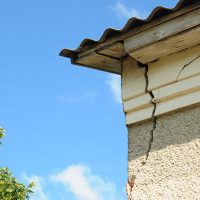Property Damages To be Alert For In And Around Your Home

Heavy rains, wind, flooding, and other impacts from frequent storms are common causes of property damages in Daytona Beach. Fires, sinkholes, falling trees, and vandalism or theft pose a threat as well. Find out what property damages to be alert for when filing a claim.
Damages To Real Property
The National Association of Insurance Commissioners (NAIC) advises carefully reviewing the portion of your property damage insurance policy in regards to covered real property. This refers to land, building, fixtures, and any improvements made which are integrated into the property and could impact your future ownership rights and interests. Having adequate coverage protects you from out-of-pocket expenses and ensures any outstanding loans on the property are paid.
Common examples of real property that should be covered by your policy include your home, garage, sheds, workshops, fencing, patios, porches, decks, and swimming pools. Damages to real property that you should be alert for when filing an insurance claim include:
- Real property that is washed away due to flooding, such as fences, decks, or other features;
- Downed trees and branches, which can impact your own property as well as that of your neighbors;
- Downed power lines and damages to plumbing, which can interfere with the use of your property;
- Ground chemical leaks, salt saturation, and other problems that interfere with land use;
- Damages to foundations and underlying support structures of your home or other buildings;
- Damage to roofs and roofing materials, ranging from actual holes to loose shingles that can allow moisture to get in;
- Dents, holes, or missing parts in gutters and siding, making the structure more susceptible to water damage;
- Cracks in cement paths, patios, sidewalks, or swimming pools;
- Broken windows and damages to window or door frames, which can compromise energy efficiency and make you vulnerable to future damages due to storms or theft.
Damages To Personal Property
You should also carefully review insurance policies in regards to coverage of personal property, Under the Florida Statutes, this is divided into four categories:
- Household goods, such as furniture, appliances, artwork, antiques, and wearing apparel;
- Intangible personal property, which includes money, property titles, and other important documents;
- Tangible personal property, which includes equipment, fixtures, leased items, machinery, signs, technology, and tools;
- Inventory, which includes any items collected or used in operating a business.
Personal property also includes cars, boats, campers, and other recreational or sports equipment. Keep a complete inventory of these items, noting the actual and replacement value of each. Report any dents, scratches, fire or water damages, and other types of destruction or losses due to theft to your insurer immediately.
Contact Us Today for Help
To avoid out-of-pocket costs, getting the maximum amount you are entitled to in a property insurance damage claim is a top priority. At Bundza & Rodriguez, we are here to help. To discuss your rights in regards to compensation or to dispute a denied claim, reach out and contact our Daytona Beach property damage attorneys today and request a consultation.
Source:
naic.org/documents/prod_serv_consumer_guide_home.pdf
